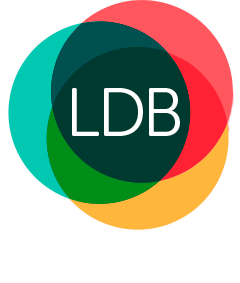Update to buying property in a self-managed super fund (SMSF) using borrowings
September 18, 2018

Rules for buying property through self-managed super funds (SMSFs) have changed, as major banks in Australia announce that they will no longer offer new SMSF loans to finance the purchase of a property.
Westpac and St George put the new rule in place, effective from 31 July 2018, which is a continuation of the banks being more restrictive in their loan conditions and offerings in recent times.
As a positive, any self-managed super funds that had finance approval in place for the loan by 31 July 2018, with either Westpac or St George, will be allowed to settle on the property purchase and commence the loan up until 30 October 2018.
A self-managed super fund loan is a way that a fund can purchase a property using a bank or a related party loan.
The Commonwealth Bank of Australia (CBA) announced on 14 September 2018 that they will also now no longer offer new self-managed super fund (SMSF) loans to finance the purchase of a property from 12 October 2018.
CBA will allow any self-managed super funds that had finance approval in place for the loan by 12 October 2018 to settle on the property purchase and commence the loan up until 28 December 2018.
SMSF trustees that are considering borrowing to purchase a new property must ensure that they have a current finance approval prior to purchasing a new property.
Banks and lenders continue to offer interest rates at approximately 6 per cent for an SMSF loan, whereas an individual could expect an interest rate for a new residential property of approximately 4 per cent.
There are other banks and lenders outside of the Big 4 banks that continue to offer SMSF loans. These include organisations such as Bank SA, Liberty Finance and AMP.
Rules about buying property through self-managed super funds
The decision to purchase a property via an SMSF loan requires careful consideration.
You can buy property through your SMSF if the property:
- Is not acquired from a related party of an SMSF member (unless it is business real estate)
- Is not lived in by a fund member or any fund members’ related parties (if it is a residential property)
- Is not rented by a fund member or any fund members’ related parties (unless it is business real estate).
Your SMSF can purchase your business premises, providing you pay rent to your SMSF at the market rate.
These additional rules apply if you borrow money to acquire a property:
- The SMSF’s trust deed must allow the trustee to borrow money
- The SMSF’s investment strategy must allow money to be borrowed
- If the loan is from a related party, refer to the conditions outlined in the Australian Taxation Office’s (ATO) safe harbour
What you can borrow
Lenders will usually allow self-managed super funds to borrow up to 70 – 80 per cent the property’s value.
Tax-deductible personal super contributions, salary sacrifice contributions and compulsory super guarantee payments can supplement rental income to cover the loan repayments.
SMSF loans are “limited recourse”, so the fund’s other assets will not be affected if the SMSF defaults on the loan.
Having a company as trustee, rather than as individuals, is generally a requirement of the lender.
The pros of buying property via self-managed super funds
Self-managed super funds pay a maximum 15 per cent tax on the rental income.
If the property is owned for longer than a year, a maximum 10 per cent tax is paid on any capital gain.
If the SMSF sells the property and you are in full pension mode, the capital gain is tax free. This assumes the pension is not a transition to retirement pension.
The cons of buying property via self-managed super funds
The SMSF loan rules are complicated.
Due to the limited recourse nature of SMSF borrowing, lenders are increasingly particular about approving loan applications. It is vital that all the rules are followed.
You should carefully consider how it might affect your cash flow, particularly if you’re a low-income earner.
Seek advice when buying property through SMSFs
Before deciding whether to purchase property through an SMSF, it’s worth speaking to our professional advisers.
LDB’s SMSF experts can answer all your questions and help you navigate the complexities of buying property via an SMSF loan.
To find out more, phone (03) 9875 2900 or send us details via the contact form below.
